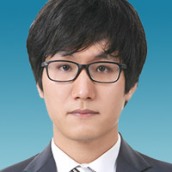LG Corp. shares rose 4.7% this year, climbing from 72,200 won at the start of the year to 75,600 won as of the closing price on June 16. This pales in comparison to other holding companies that have soared over the same period: LS (89.3%), HD Hyundai (59.6%), CJ (56.9%), and SK (52.3%). Even GS, which spun off from LG and whose affiliates have struggled, climbed 23.7%.
 이미지 확대보기
이미지 확대보기A plausible explanation for LG’s relatively weak stock performance is that “its affiliates’ earnings are sluggish and their outlook is poor.”
LG is a pure holding company that does not run its own business operations. Last year, most of its separate revenue of 932 billion KRW came from subsidiaries. The breakdown: 432 billion KRW in dividends, 356 billion KRW in trademark royalties, and 143 billion KRW in rental income from investment properties.
Its main subsidiaries (ownership stakes) include LG CNS (49.95%), LG Electronics (31.07%), LG Chem (30.69%), LG Uplus (37.66%), LG Household & Health Care (30.0%), and HS Ad (35.0%). With the electronics and chemical/battery sectors suffering from weak demand and policy uncertainty in the U.S., expectations for an earnings rebound are low.
However, the recent surge in holding company stocks is largely attributed to policy expectations from the new administration, which has pledged to boost shareholder value and the stock market through measures like amending the Commercial Act.
Through its value-up plan announced late last year, LG raised its minimum dividend payout ratio (based on separate net income, excluding non-recurring gains) from at least 50% to at least 60%. It also announced it would cancel all treasury shares (3.85% of shares, worth about 500 billion KRW) by next year. Still, some argue that “shareholder returns remain insufficient” to drive up the stock price, especially as cash inflows from subsidiaries dwindle.
Some analysts attribute the sluggish share price to a “lack of trust from the market.” In particular, there has been shareholder backlash over frequent subsidiary listings.
LG CNS was listed on the KOSPI in February this year. Even before the IPO, LG Corp. shareholders were concerned about dilution of shareholder value.
In response, LG CNS CEO Hyun Shin-kyun personally stated, “We will be able to deliver benefits to LG Corp. shareholders by enhancing corporate value.”
On the other hand, Kim Jang-won, a researcher at BNK Investment & Securities, wrote in a pre-IPO report, “When LG CNS was unlisted, there was a direct reason to invest in LG, but after the listing, that role has ended,” adding, “It is hard to expect unlisted companies to serve as substitutes for LG CNS now.”
Meanwhile, Koo Kwang-mo, chairman of LG, recently met with President Lee Jae-myung. The meeting took place on the 13th, when the president invited the heads of the five major conglomerates and the leaders of six economic organizations to discuss economic growth strategies. At the meeting, Samsung Electronics Chairman Lee Jae-yong remarked, “After you were elected president, I read your autobiography.” Attendees, including Chairman Koo, were seen smiling. When it was Koo’s turn to speak, he requested to do so “off the record,” and the president accepted. However, it is reported that sensitive topics for companies, such as amendments to the Commercial Act, were not discussed at the meeting.
Gwak Horyung (horr@fntimes.com)
[관련기사]
가장 핫한 경제 소식! 한국금융신문의 ‘추천뉴스’를 받아보세요~
데일리 금융경제뉴스 Copyright ⓒ 한국금융신문 & FNTIMES.com
저작권법에 의거 상업적 목적의 무단 전재, 복사, 배포 금지




















